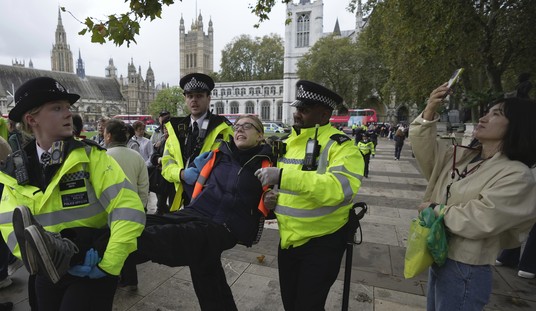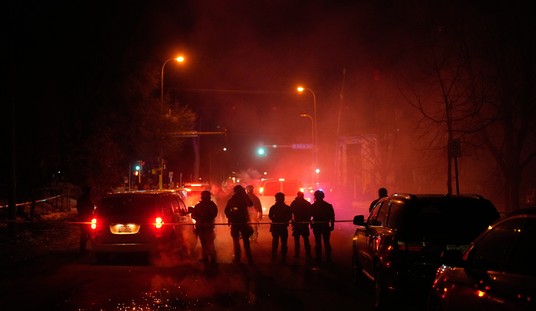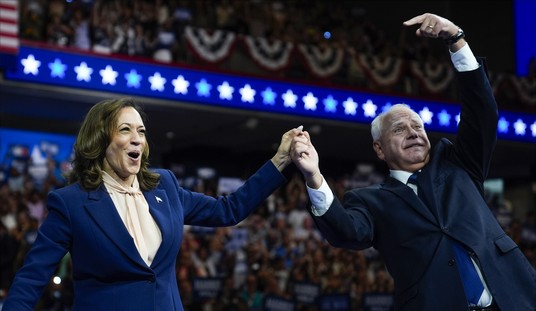China, as we have been well reminded today by the Washington Post, is celebrating the 120th anniversary of Chairman Mao’s birthday. It’s no secret why even today’s state-capitalist China — held together in a fragile fashion by its ruling Communist Party — is seeing fit to mark the occasion. Mao is the link to its continuing legitimacy as a ruling group. Its ideology is no longer Marxist-Leninism, but Market-Leninism. Its “get rich quick” philosophy has created a slew of new billionaires, who live in mega mansions that are far greater than any in West Palm Beach or Malibu, but whose inhabitants swear fealty to the wisdom and guidance of the party leaders.
The ruling Communists eschew democracy; continue to jail dissidents in harsh prisons; and occasionally break out anti-corruption campaigns, in which former party leaders are brought down a notch and either imprisoned, executed, or subject to house arrest. Those who write forbidden thoughts are not allowed to have their fellow countrymen read them. The Internet is severely restricted, and censors regularly pick out major Western websites which Chinese users find they are unable to access. We might think the New York Times is a leftist paper, but try to log on to it from a Chinese Internet provider. Good luck. You never know when something in its pages might prove to be embarrassing to the comrades in charge of propaganda.
When I was in China for one of those State Department public diplomacy tours in 2000, before our highly contested election that year, I spoke all over the country to explain our American political system, how it worked, and to lecture on the meaning of political democracy. The last day in Beijing, before I was about to leave back for the States, the American embassy phoned to say they had managed to book me on the most popular talk program in the country, in which I and an interviewer — a political scientist from the university who had his own popular program, something akin to Charlie Rose on PBS here — would conduct the discussion.
It was a big coup to place me on the program, the embassy spokesman told me. They never had been able to do that before. I got to the station on time, and presented my views much as I had in lectures at universities and public forums. These, of course, were limited to those who came to hear me. The show was taped, and I was told it was to be broadcast later that evening, in prime time. I received a call from the embassy again. The censors viewed it before airing, and right before airtime, they re-broadcast an old program, putting my interview into the ashcan. The reason, the embassy told me, was that they thought my comments on political democracy were too volatile to be heard by a vast audience.
Mao never believed in political democracy. As Gao Wenqian, once a leading Chinese Communist and now a dissident who advises the group Human Rights in China and lives in our country, explained in an op-ed:
It’s no surprise that China’s leaders have chosen to honor Mao with such pomp. In the decades following the establishment of the People’s Republic in 1949, Mao’s cult of personality formed the cornerstone of the one-party system…now, as the economy has slowed, China’s leaders have found it necessary to defend the Communist Party’s monopoly on power by invoking the nation’s “glorious” history — with Mao’s legacy its most potent tool.
Mao killed millions. The death toll alone of the “Great Leap Forward” was somewhere between 36 million and 45 million. During all that time, Mao and his leaders lived in luxurious surroundings, where servants galore rewarded every whim.
The irony is that the most corrupt and self-serving leaders, like the now-imprisoned Bo Xilai, were the first among the Party leadership to revive Mao’s legacy and urge a return to Maoism. He, and those who purged and imprisoned Xilai, now evoke Mao’s name and legacy to serve the political ends they favor.
In another brave op-ed published outside China, a former aide to ousted Chinese Premier Zhao Ziyang, a dissenter named Bao Tong who is now under house arrest, writes about how the myth of Mao still hangs over China today, and prevents the country from moving forward towards freedom.
Mr. Tong begins with Mao’s pre-Communist promise to create a “New Democracy,” which he rightfully says was a ruse meant to win allies in Mao’s fight against Chiang Kai-shek. All of Mao’s promises were lies — the peasants got no land, all freedoms including the right to strike were taken from factory workers, and those who owned property found that the state and the party now owned them.
Mao was trying to out-Stalin Stalin, and the Soviet dictator’s death gave Mao the chance to try to present himself as Stalin’s real successor, the single leader who would chart the course of the world revolution from Communists the world over. As Tong sarcastically writes, “Mao’s contribution to socialism could be represented as ‘zero,’ if it is possible to dismiss tens of millions of deaths heaped upon hundreds of millions with a single stroke of the pen.”
His real legacy, according to Tong, was the simple one of “whoever opposes Chairman Mao will be brought down.” The problem, of course, was that Mao brought down the people alongside his own opponents. Tens of millions died and starved to death, as China exported grain to pay for making bombs.
Why, then, do China’s current leaders take the time to have spectacles throughout the country honoring the madman who almost destroyed it? The reason is that they would not be in power if not for Mao’s victory in 1949. Hence they want to, Tong writes, “perpetuate the myth of Mao for all eternity,” hoping that future generations will keep the party leader’s children and grandchildren in power generations from now.
It is not only the Chinese who have to honestly face the real meaning of Mao’s legacy. I wait, probably in vain, for all those American New Leftists who sang Mao’s praises during the 1960s and ’70s to make some apologies. I remember the actress Shirley MacLaine’s return from China, when she informed Americans that Mao inspired her to bravely resume her dwindling career and return to dance. I remember as well when a noted American Marxist-feminist returned from a trip to China right after the years of murder and craziness known as the Great Proletarian Cultural Revolution, and told the New Left that “the Cultural Revolution is all about the freeing of women.” And, of course, there were all those accounts of how the new peasant communes were leading the Chinese peasants to boundless prosperity and real wealth
These American leftists all sang China’s praises. There were three different pro-Mao Marxist-Leninist New Left grouplets created, each claiming to be the real Communists who would build an American movement based on Mao’s theories. Two of them emerged from SDS; the third and most successful was a spin-off of the old American Communist Party — the so-called Progressive Labor Party. Their members are still around; many of them are still activists in organizations such as Occupy Wall Street and other existing left-wing groups. So far, on the eve of Mao’s forthcoming birthday celebrations, I have not seen any of them offer any kind of reconsideration, not to mention an apology to those they tried to mislead.
As David Horowitz has often said, “Being on the Left means never having to say you’re sorry.”









Join the conversation as a VIP Member